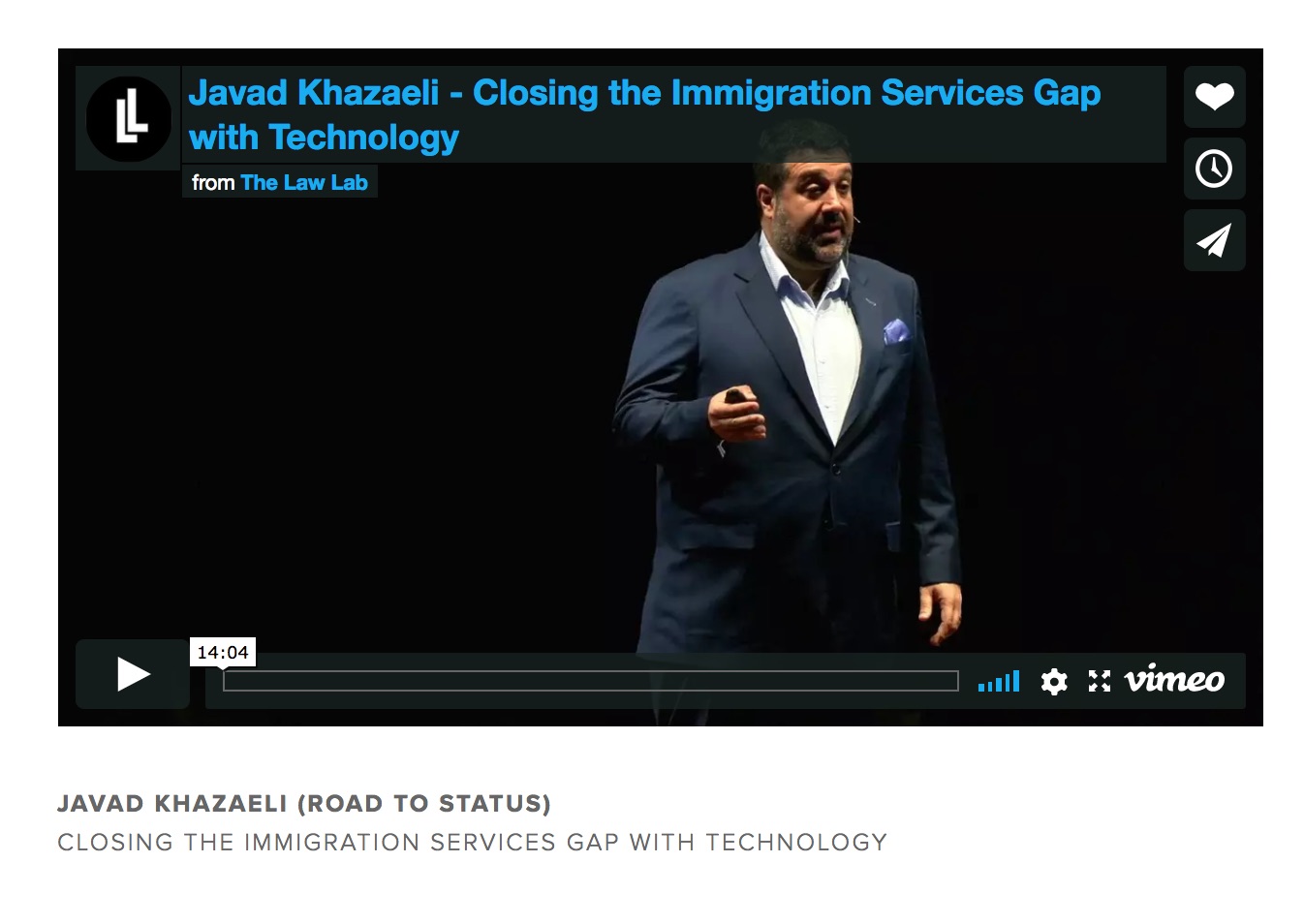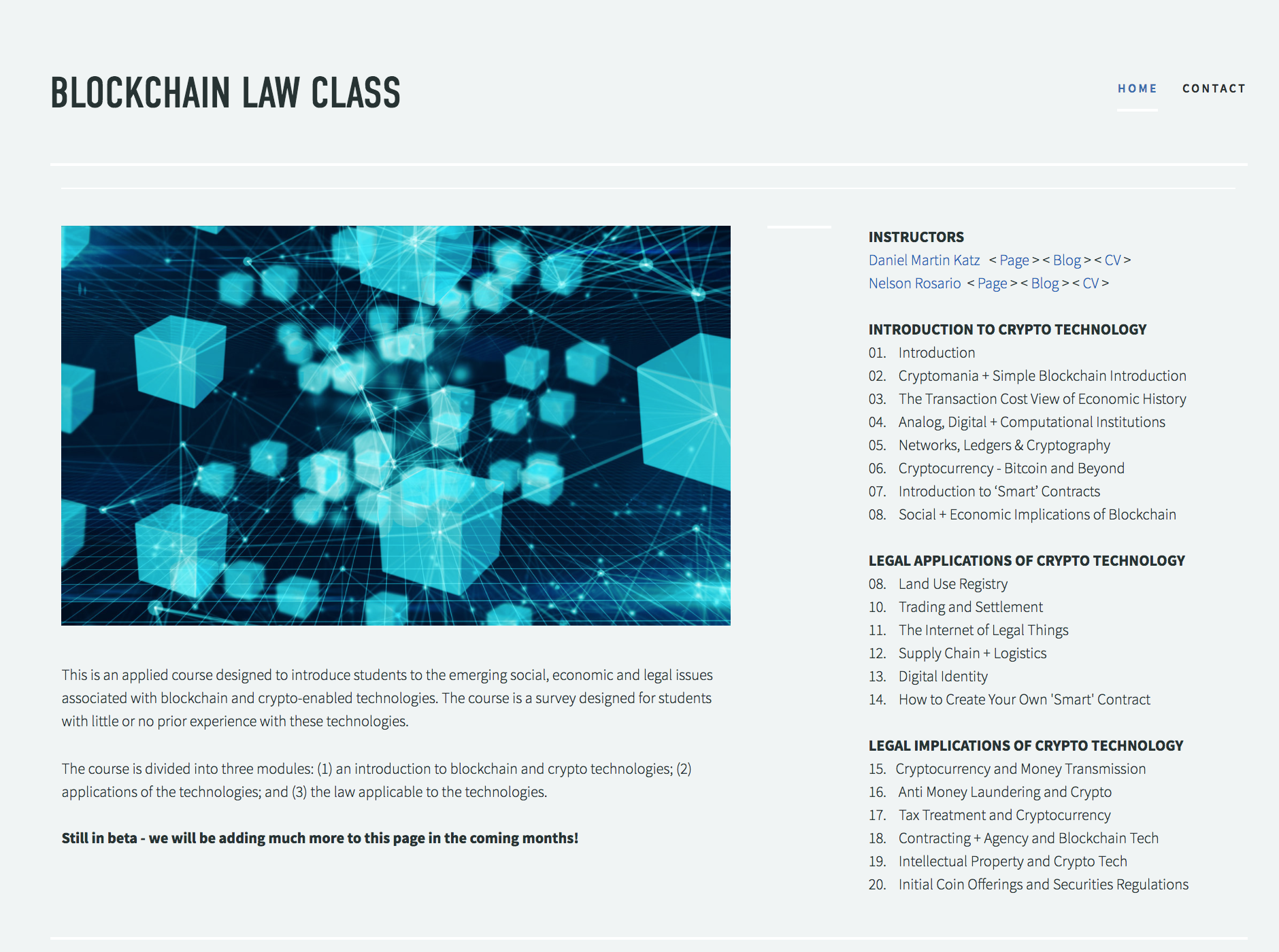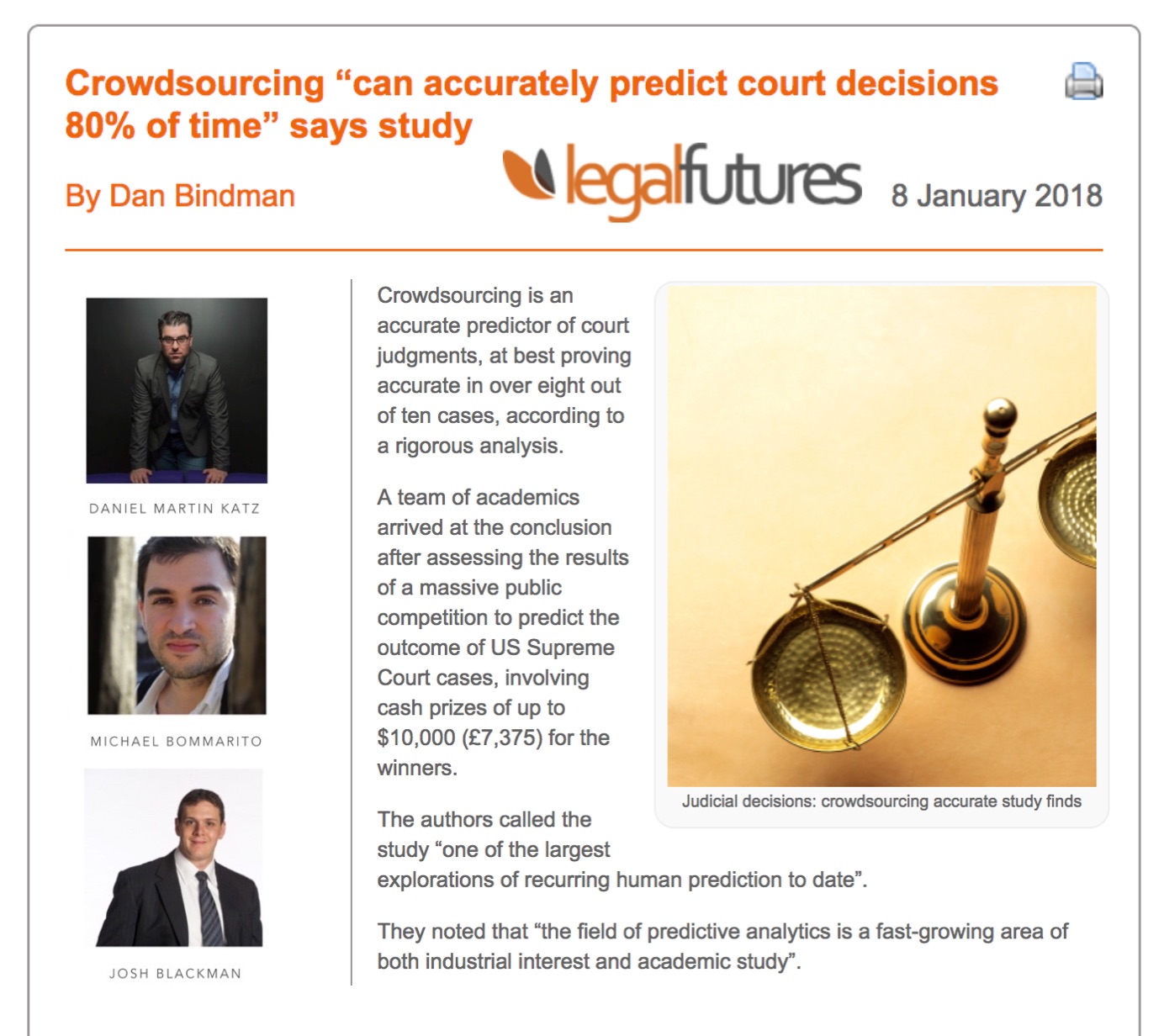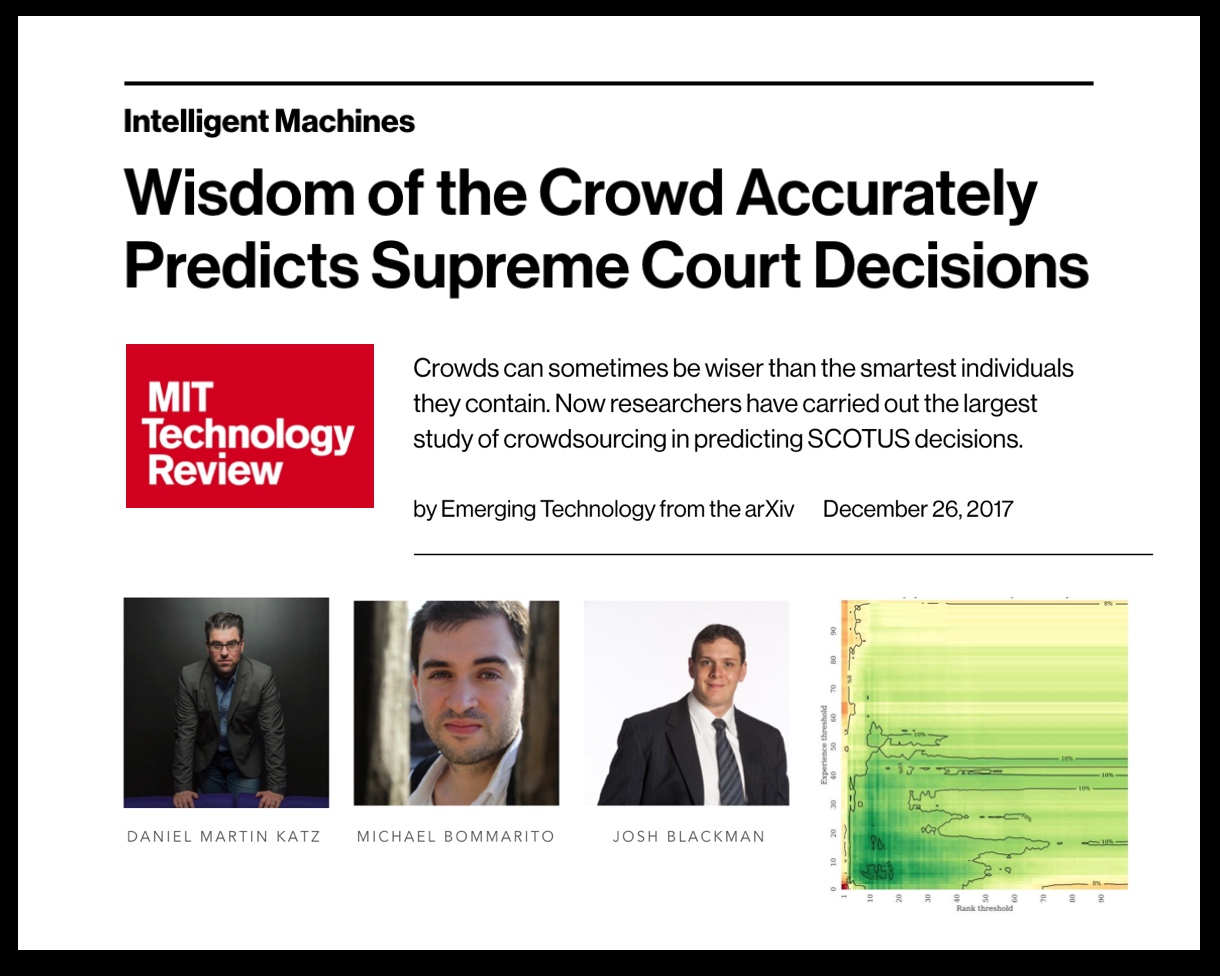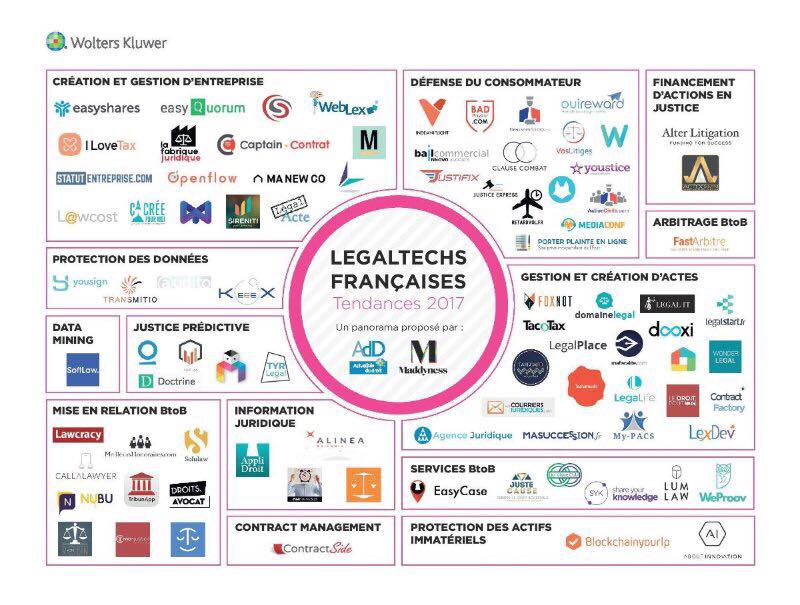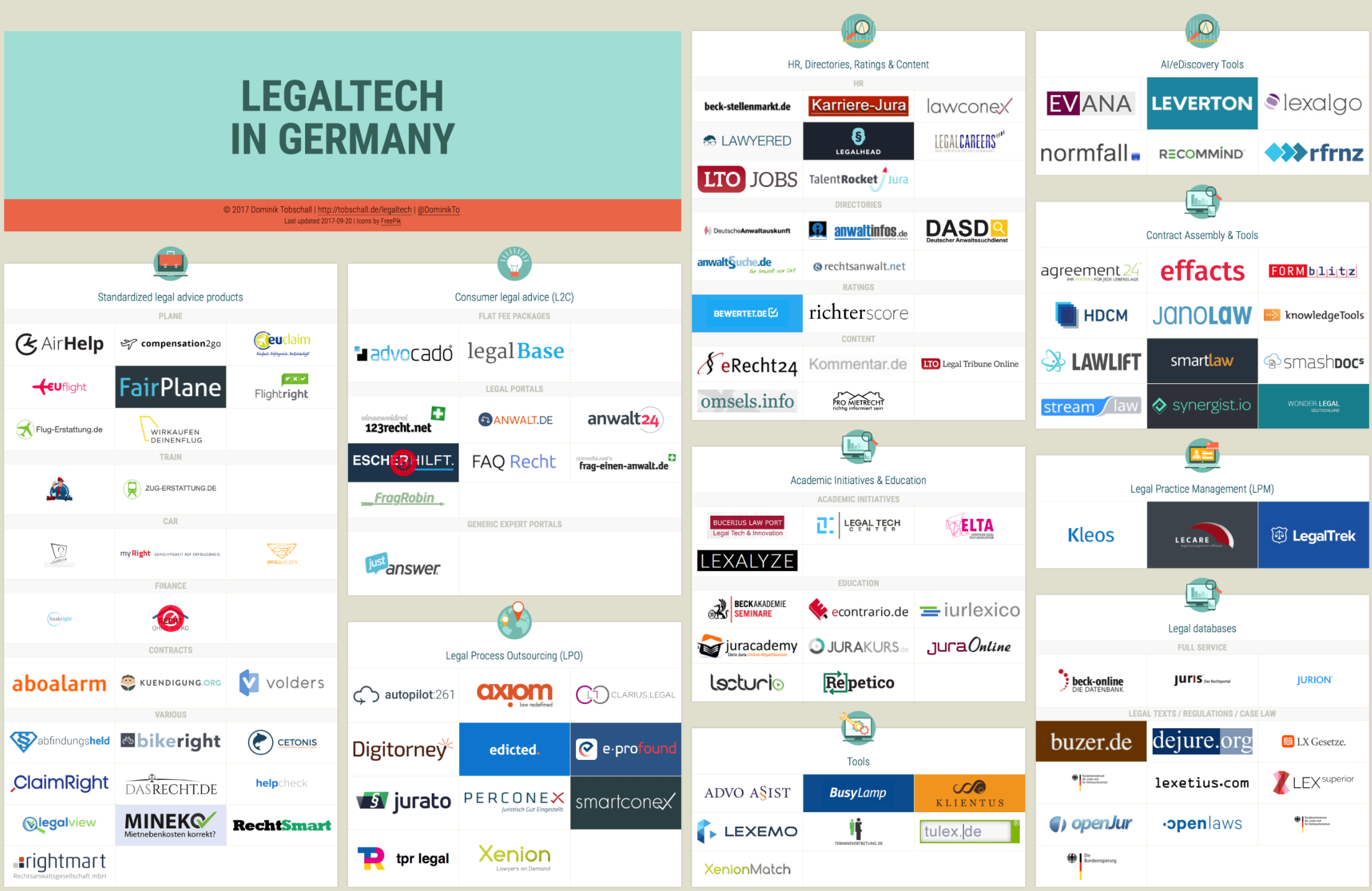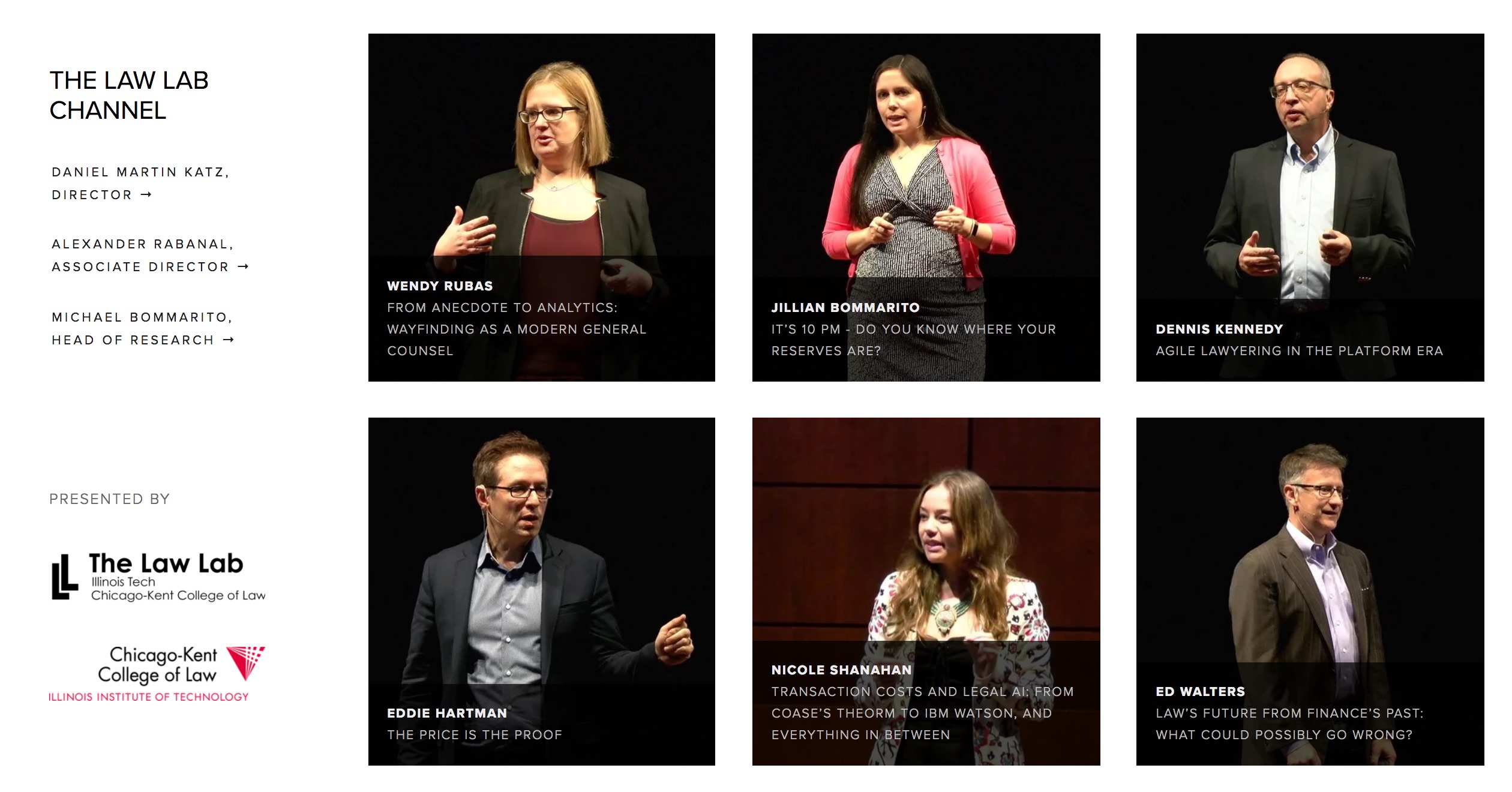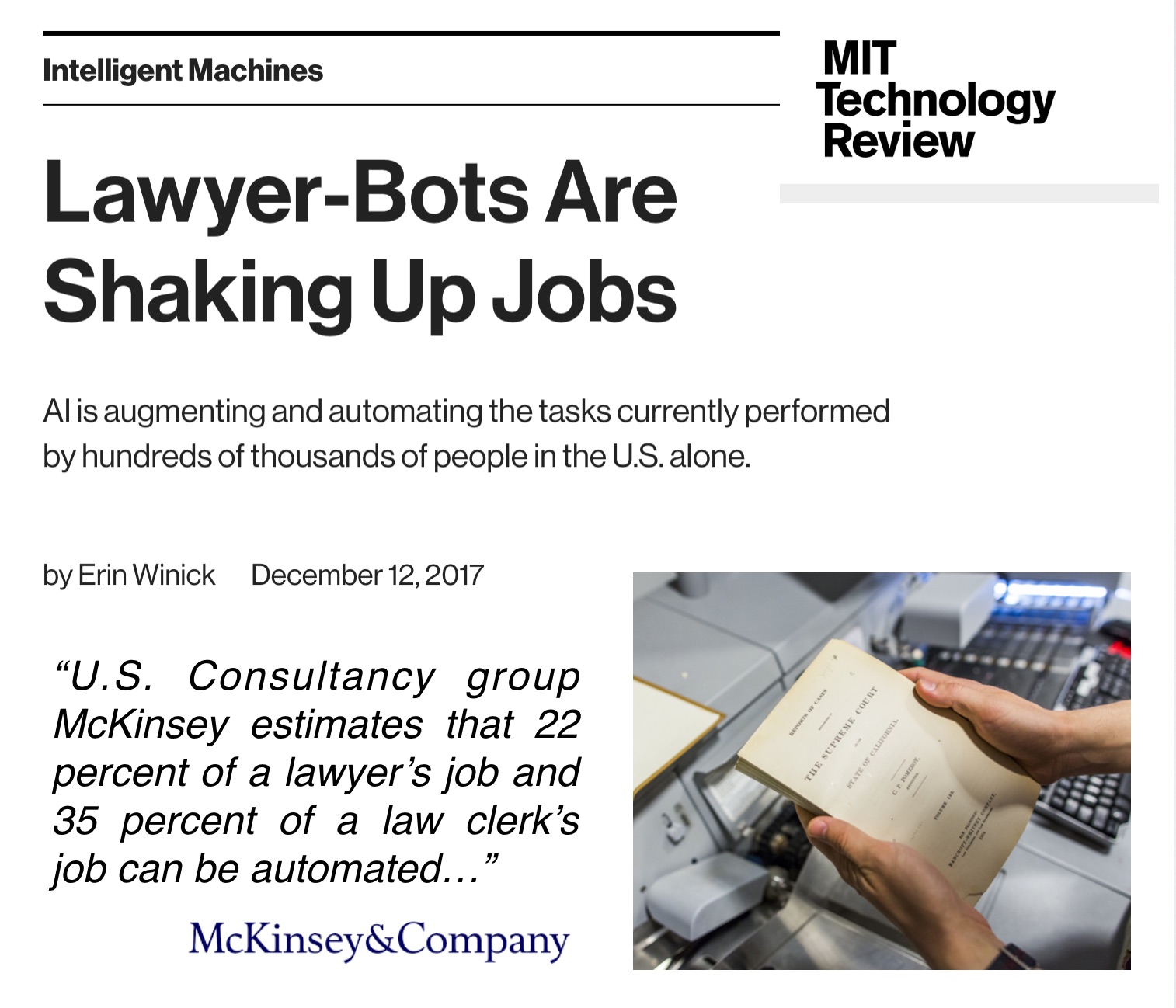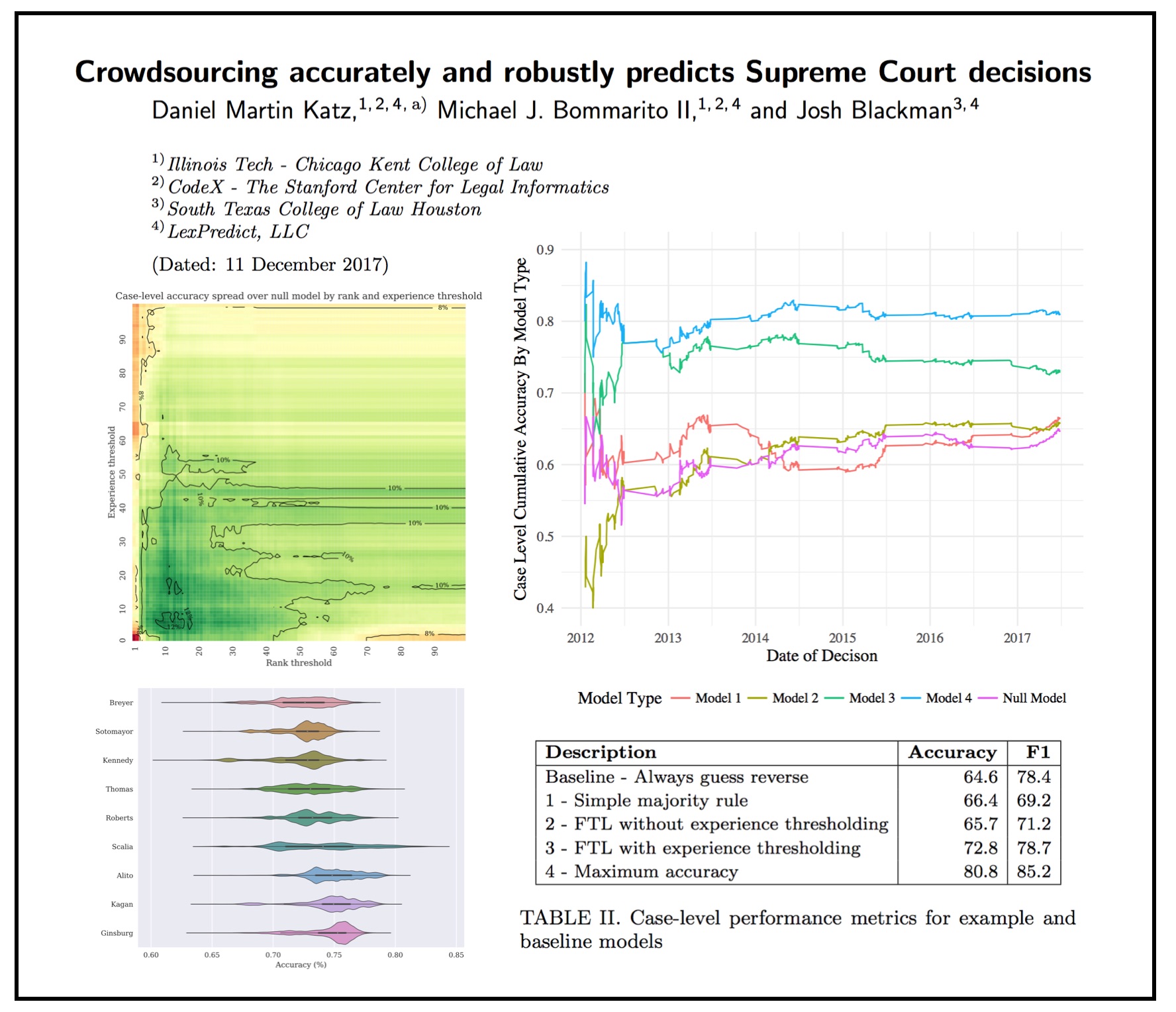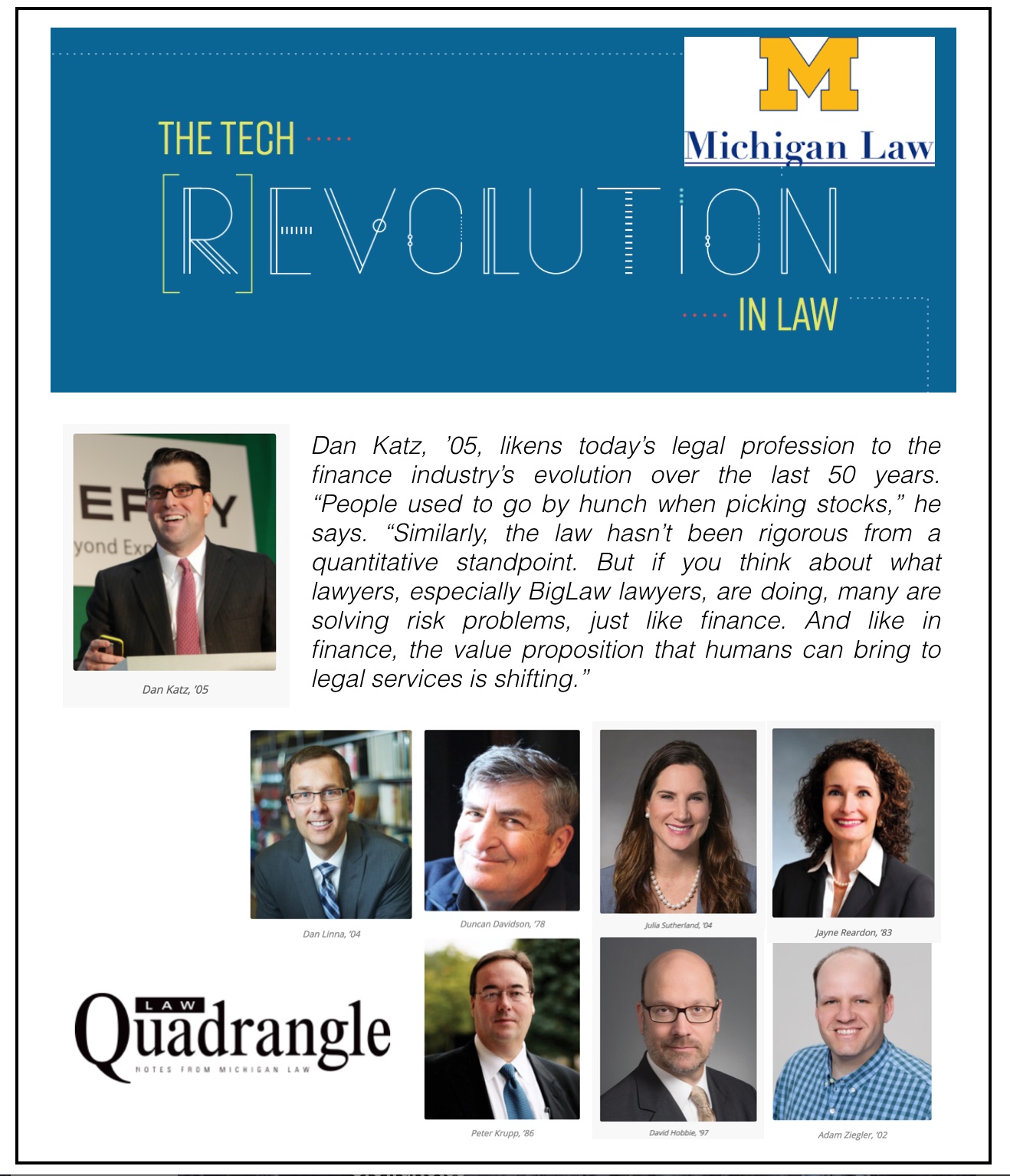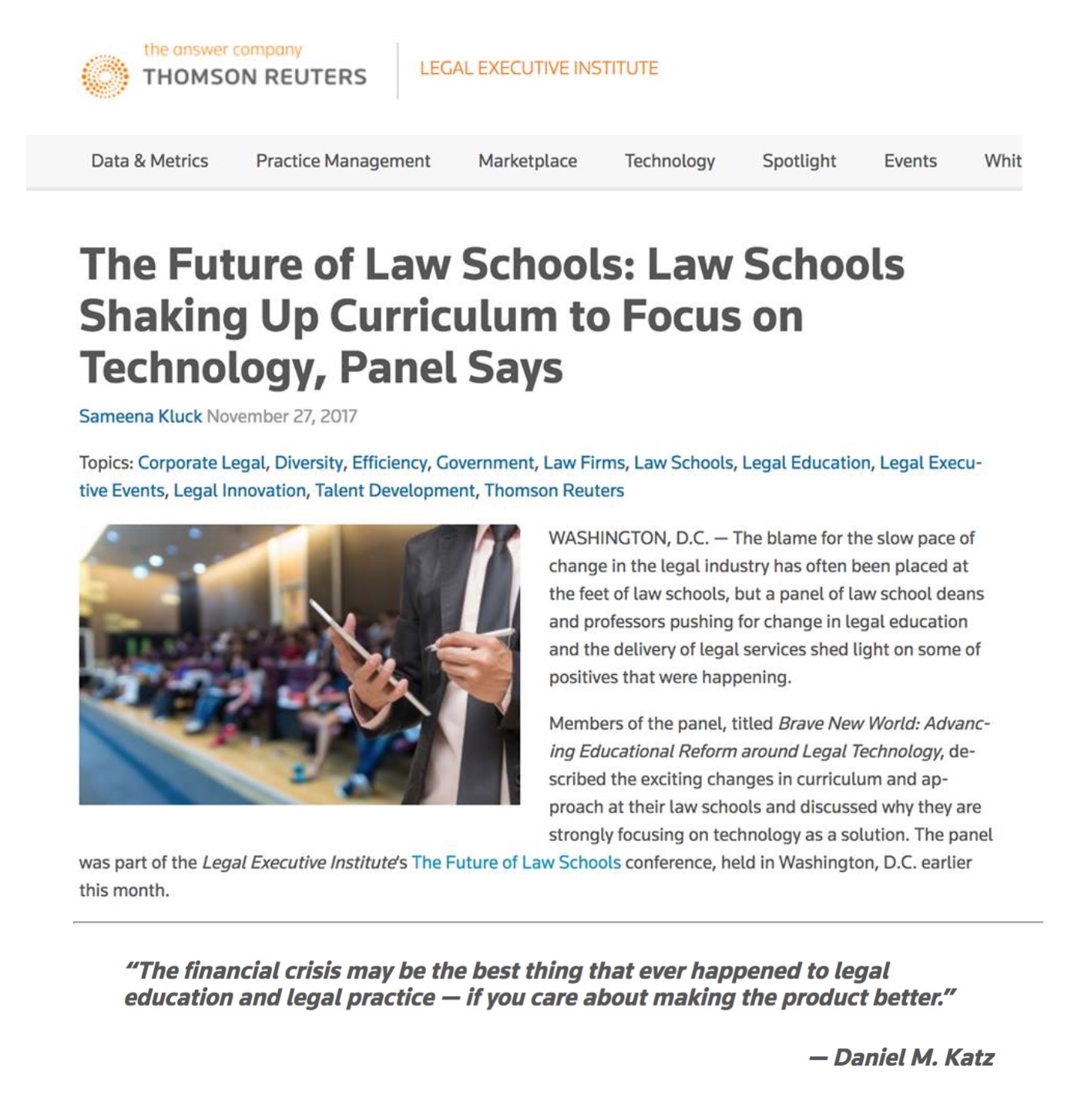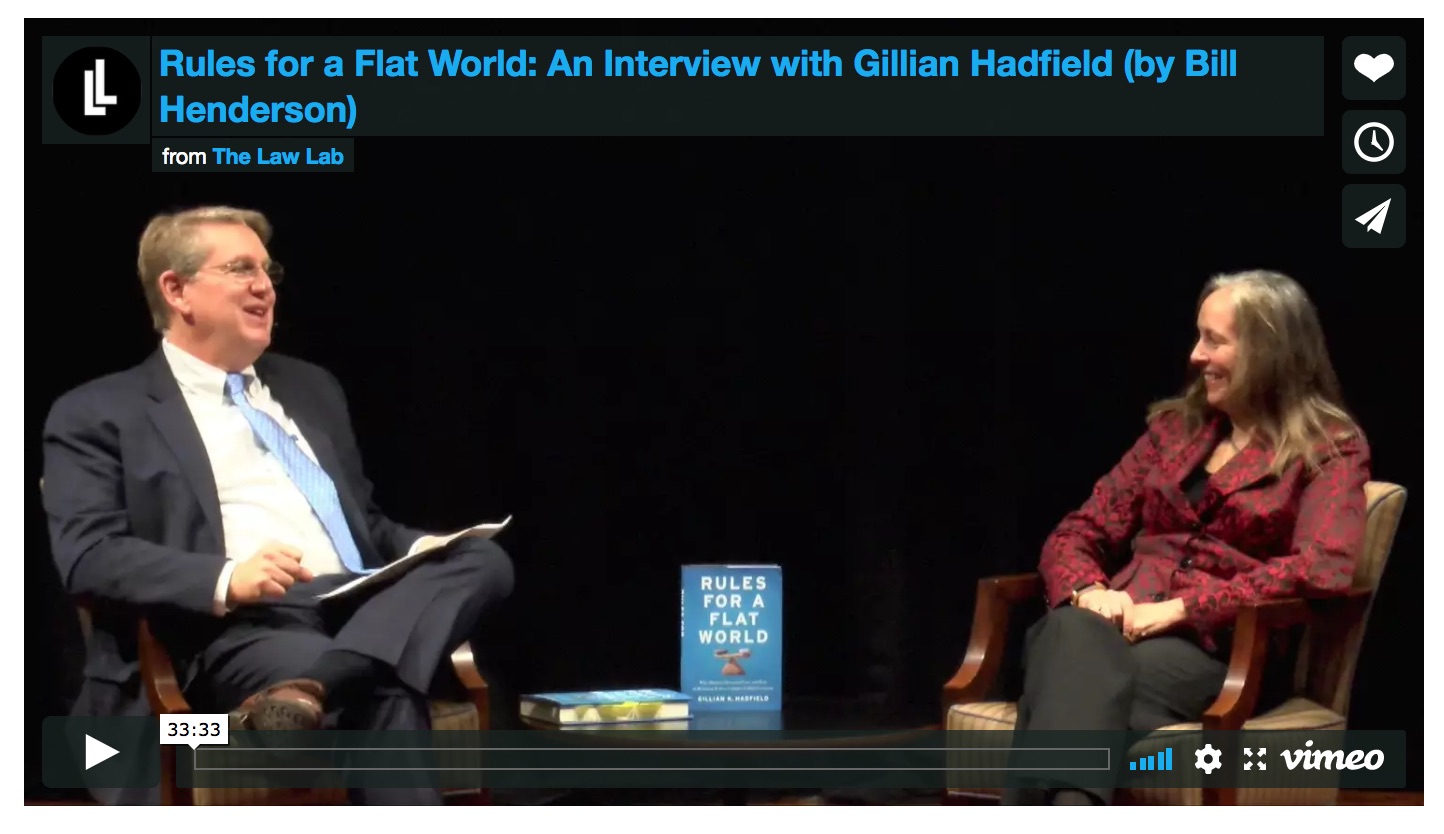Tag: legal innovation
Legal Process Improvement Workshop for the Chicago Kent Course with Seyfarth Shaw at the Willis Tower
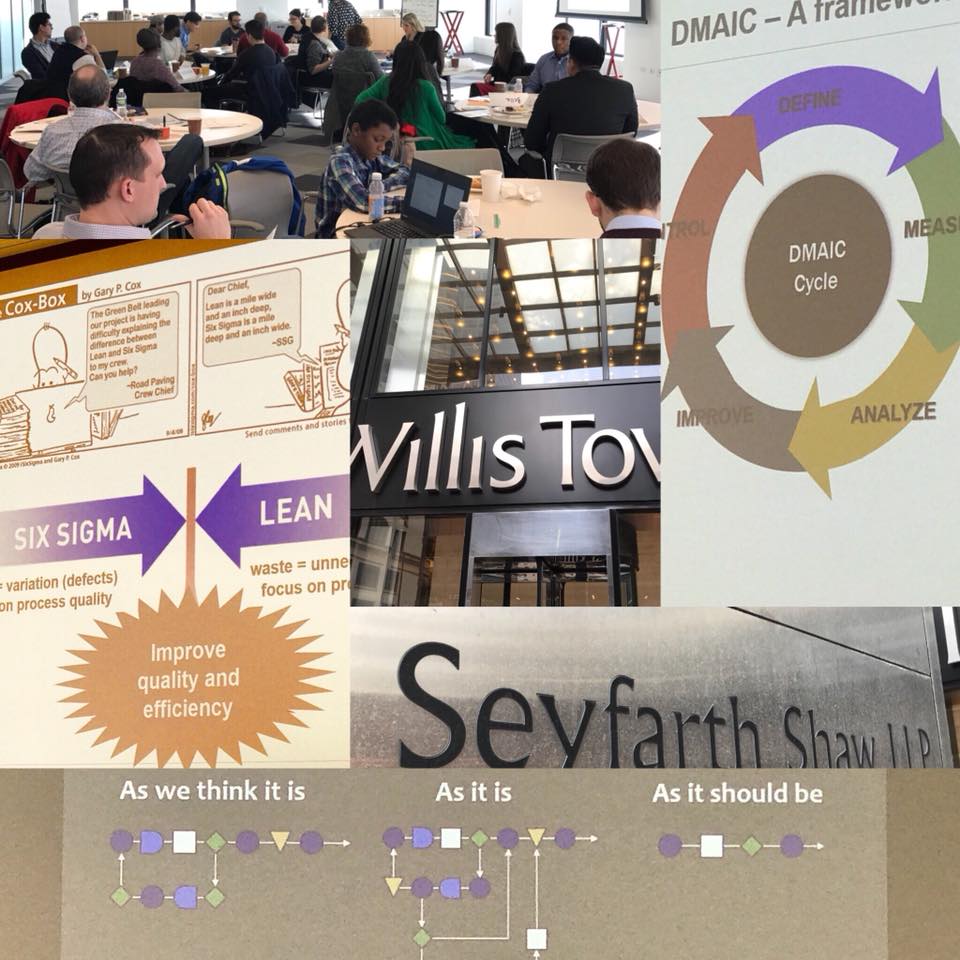
Happy Saturday – our Legal Process Improvement Workshop for the Chicago Kent Course is underway here the Willis (Sears)Tower 80th Floor @seyfarthshawLLP #leanlaw #legalinnovation – thanks to Kim Craig and her team for hosting us!
Blockchain, Crypto Infrastructure and the Transaction Cost View of Economic History
Blockchain, Crypto Infrastructure and the Transaction Cost View of Economic History — This is a course module available on BlockchainLawClass.com (check back for more over the coming weeks)
Blockchain Law Class Website
(Website is now live … still in beta … content to be added each week)
Wisdom of the Crowd Accurately Predicts Supreme Court Decisions (MIT Technology Review)
See coverage of our paper in MIT Technology Review and access paper on arXiv or SSRN
Six New Videos Added to TheLawLabChannel.com
WENDY RUBAS (VILLAGEMD)
FROM ANECDOTE TO ANALYTICS: WAYFINDING AS A MODERN GENERAL COUNSEL
JILLIAN BOMMARITO (LEXPREDICT)
IT’S 10 PM – DO YOU KNOW WHERE YOUR LEGAL RESERVES ARE?
DENNIS KENNEDY (MASTERCARD)
AGILE LAWYERING IN THE PLATFORM ERA
EDDIE HARTMAN (LEGALZOOM)
THE PRICE IS THE PROOF
NICOLE SHANAHAN (STANFORD CODEX)
TRANSACTION COSTS AND LEGAL AI: FROM COASE’S THEOREM TO IBM WATSON, AND EVERYTHING IN BETWEEN
ED WALTERS (FASTCASE)
LAW’S FUTURE FROM FINANCE’S PAST: WHAT COULD POSSIBLY GO WRONG?
Blockchain, Cryptocurrency + Law Course – ( Professor Nelson Rosario + Professor Daniel Martin Katz )
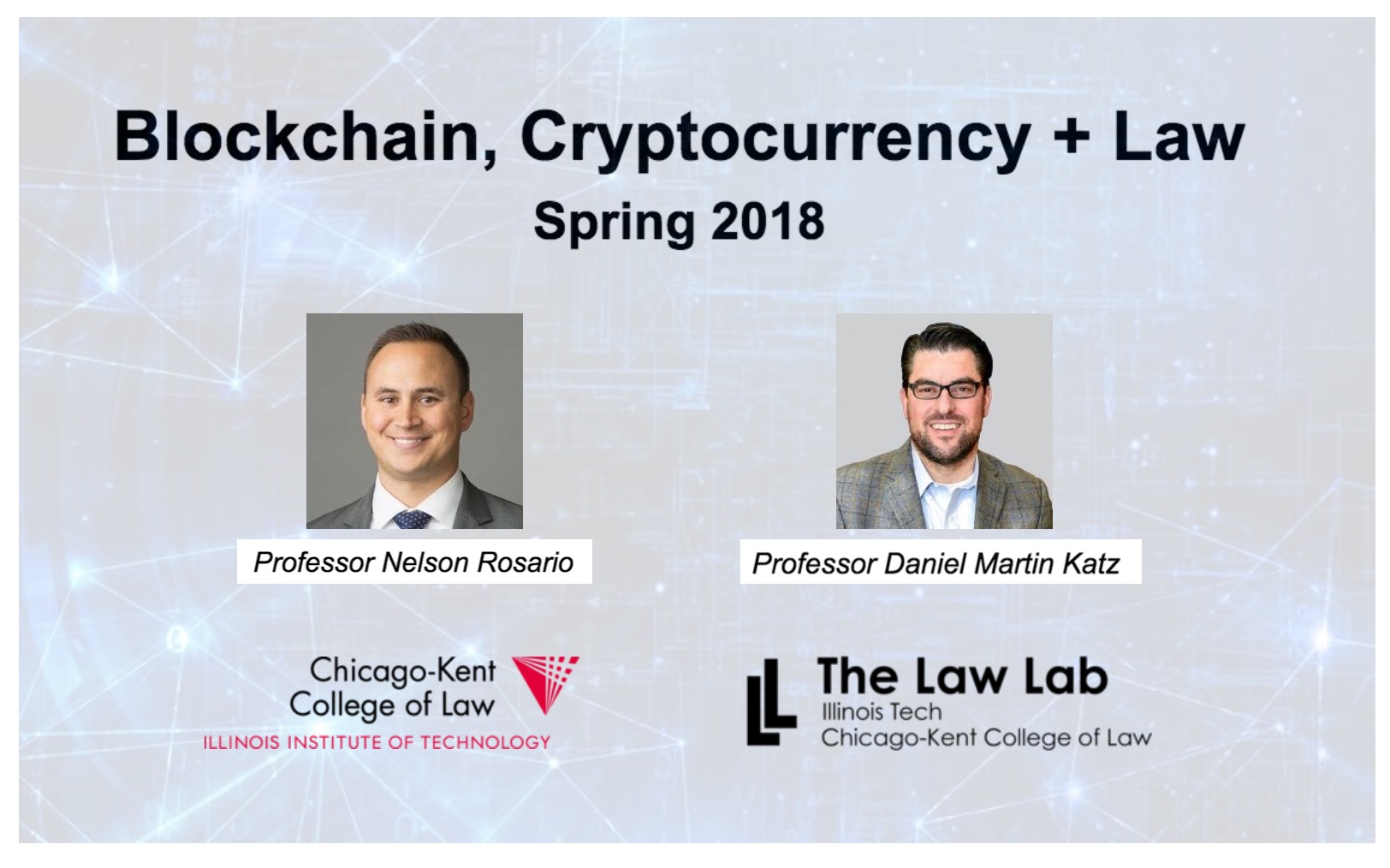
Next semester – I am looking forward to teaching Blockchain, Cryptocurrency + Law with CK alum Nelson Rosario – there is real demand for this class among our students – the class was full before registration was even complete — we have 50 students taking the class and had to turn away a number of students … #LegalTech #Blockchain #LegalInnovation #Hashtag
Crowdsourcing Accurately and Robustly Predicts Supreme Court Decisions — By Daniel Martin Katz, Michael Bommarito, Josh Blackman – via SSRN)
ABSTRACT: Scholars have increasingly investigated “crowdsourcing” as an alternative to expert-based judgment or purely data-driven approaches to predicting the future. Under certain conditions, scholars have found that crowd-sourcing can outperform these other approaches. However, despite interest in the topic and a series of successful use cases, relatively few studies have applied empirical model thinking to evaluate the accuracy and robustness of crowdsourcing in real-world contexts. In this paper, we offer three novel contributions. First, we explore a dataset of over 600,000 predictions from over 7,000 participants in a multi-year tournament to predict the decisions of the Supreme Court of the United States. Second, we develop a comprehensive crowd construction framework that allows for the formal description and application of crowdsourcing to real-world data. Third, we apply this framework to our data to construct more than 275,000 crowd models. We find that in out-of-sample historical simulations, crowdsourcing robustly outperforms the commonly-accepted null model, yielding the highest-known performance for this context at 80.8% case level accuracy. To our knowledge, this dataset and analysis represent one of the largest explorations of recurring human prediction to date, and our results provide additional empirical support for the use of crowdsourcing as a prediction method. (via SSRN)
International Bar Association – President’s Task Force on the Future of Legal Services (Phase I)
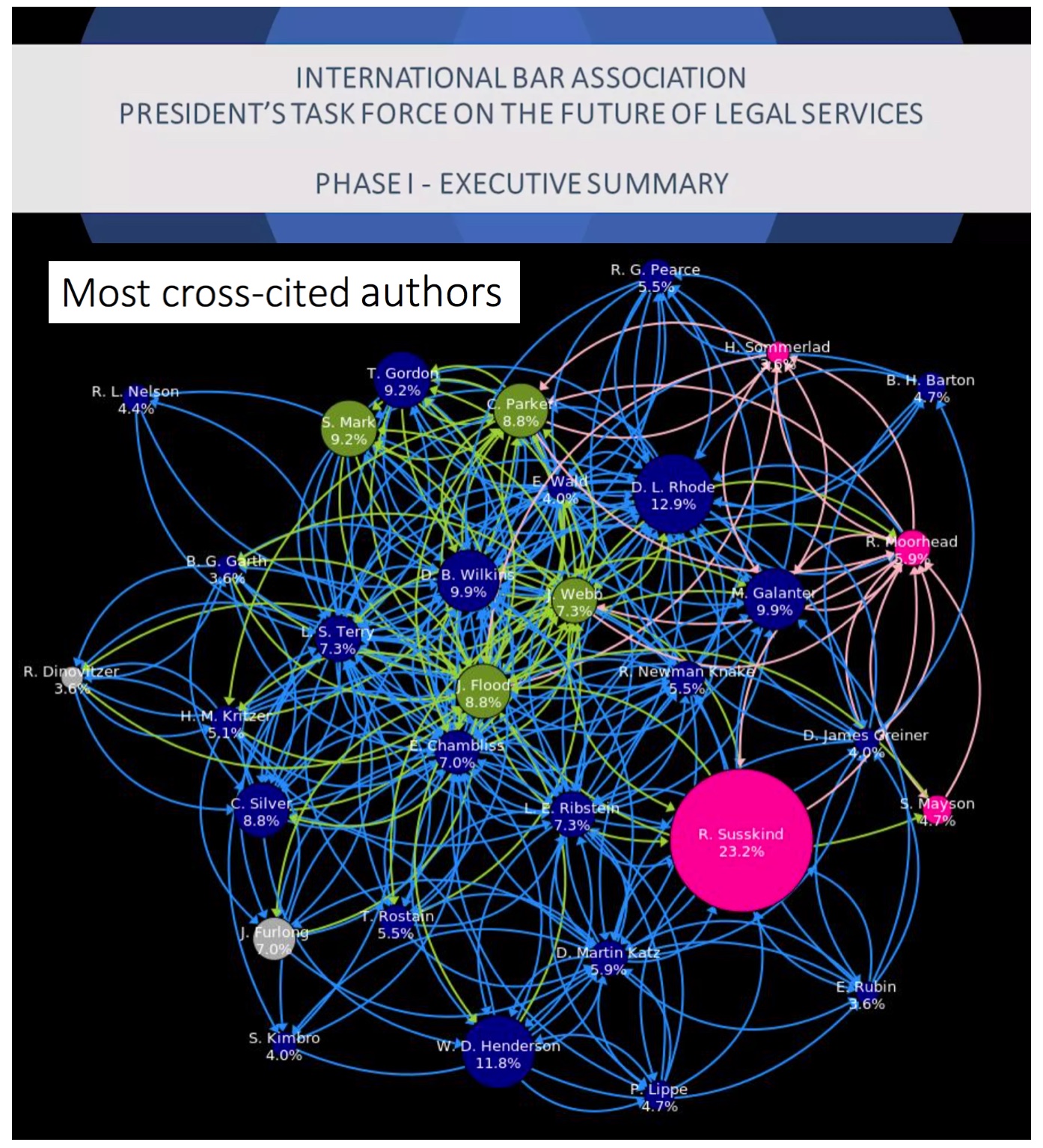
I am very happy to be included among most cited scholars in the network of the INTERNATIONAL BAR ASSOCIATION – PRESIDENT’S TASK FORCE ON THE FUTURE OF LEGAL SERVICES along with John Flood, the late Larry Ribstein, Richard Susskind, Paul Lippe, Tanina Rostain, William Henderson among many others …

